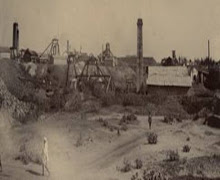
In the 1300?s an epidemic known as the bubonic plague spread throughout Europe. This epidemic later known as the Black Plague has been historically recorded as one of the worst pandemics in human history. It is was so deadly that once infected only 1/3 survived and those who didn’t died within a couple of weeks. During its peak years from 1346-1351 this disease wiped out more than 50 million people, about 1/3-1/2 of the European population.
The Origins of the Black Plague
The Black Plague was highly contagious, it was caused by bacteria carried in rats and fleas. Back then with poor hygiene and sanitation being bitten by a flea was not a difficult thing. The bacteria apparently originated in Central Asia was characterized by causing infection and swelling of the lymph nodes. It devastated the victim’s immune system causing great pain, nausea, vomit and in the worst case death
Medieval illustration showing the symptoms of the Black Plague
The Black Plague was a thing of the past, nowadays there are barely traces of the disease and if an outbreak occurred, antibiotics have been developed enough to cure almost 90% of the cases. Compared to the past where there were no antibiotics dying from the Black Death was a sure thing.
The Nuclear PlagueDevelopments in medicine and better sanitation practices have eradicated the Black Plague from the phase of the planet, the battle against this medieval monster was won hundreds of years ago. However nowadays we are facing a bigger threat. It is disguised in the form of an energy fuel and they call nuclear energy.
Many technocrats have tagged nuclear energy as a blessing of modern technology, the triumph of man by harnessing power of the universe. Nuclear energy might be a blessing in the sense of its apparent energy yield, but the thing technocrats stress the least about it is what is left after the consumption of nuclear fuel. What is left is a monstrous byproduct much more worse than the Black Plague that almost exterminated medieval Europe.
The byproduct generated from the fission of nuclear fuel in the form of uranium or plutonium creates what is called nuclear waste. This waste comes in huge variety of extremely radioactive material with half-lives ranging from 8 days to hundreds of thousands of years. In other words their radioactivity takes a really, really long time to decay, thousands of times our human life-times. These fission products if released to the environment will last a long time, and the worst part is that it is almost impossible to decontaminate them.
Nuclear byproducts in Fukushima
In the case of Fukushima radiation has been released in various types. One of them is in the form of rays, the most dangerous being gamma and beta rays. This type of radiation travels like light and once obstructed it can be contained or avoided. Gamma rays are the strongest ray type radiation and it can be blocked by thick concrete/metal or dissipated by distance. This type of radiation is probably the least dangerous if you are hundreds of kilometers away from the source in this case the Fukushima reactors.
The other type of radiation that has been emanating since day one in Fukushima is the particulate radiation. This type of radiation is generated through the vaporization of radioactive substances and radioactive water and it travels in the form of airborne microscopic particles. It is like a radioactive dust, but thousands of times smaller and invisible to the human eye.
Particulate radiation can be easily stopped, just like you can prevent dust at home by covering your furniture or PC. However there is a huge downside, in the case of Fukushima tons of cubic meters of particulate radiation have been released into the environment. All of it invisible and impossible to trace have spread through the neighboring land, water bodies and nature. “Fortunately”, thanks to the favoring wind currents most of it has been blown into the ocean, becoming a different type of problem, pollution of the seawater and fish. But not all the time the wind blows east sometimes it blows inland and that is when these particles start polluting the land, water and the food chain.
The particulate radiation released in Fukushima has been mainly,
- Iodine-131 8 day half-life
- Cesium-137 30 year half-life
- Strontium-90 30 year half-life
- Plutonium-239 25,000 years half-life
How particulate radiation spreads like a disease
The radioactive byproducts mentioned above have been released into the environment since the first explosion in Fukushima. Iodine-131 and Cesium-137 have been already detected in tap water, vegetables and milk. That means that they have already reached the bottom of the food chained and have found their way up into human consumption. The government has officially announced the detection of these products and has stated that the level are still “safe”. However, with radiation it is always difficult to draw a line between safe and unsafe, since it is difficult to determine the dangers of such byproducts in the short term.
Since the development of a cancer tumor through radiation exposure can take years to appear. So in the short term at the announced levels the risk of cancer is very low, however it is difficult to determine it in the long term. Once a radioactive particle reaches the human body it remains there and as long as it is radioactive it will contaminate the human cells permanently, creating a small ring of destruction around its path. This is the seed for a cancer tumor. The cellular destruction by a radioactive particle is so microscopic and insignificant at the beginning that it is impossible to identify. The damage is occurring at such a small scale that it remains unnoticeable for years until it breeds a tumor big enough to become a problem.
Just like the Black Plague bacteria radiation particles act in the same way, they enter the body unadvertised and begin spreading the damage throughout the body. The Black Plague manifest itself in days with strong symptoms like nausea, vomit and swelling, advising its presence. This can give enough notice to act and combat it through antibiotics. However, radioactive particles do not manifest any symptoms through out years only when they breed a tumor big enough to become a health risk, and usually it is too late to react.
Particulate radiation the perfect plague
I found that comparing particulate radiation with one of the worst diseases in mankind was not that outrageous, since Chernobyl has been a perfect example of how particulate radiation has spread like a disease killing thousands, and allegedly being the cause of cancer in millions throughout Europe, although the link has not been “officially” proven. Just by curiosity I decided to check cancer trends in Europe, breast and leukemia for example, spiked after 1995 and have more incidence in countries closer to Ukraine, coincidence?

Depiction of a food web with humans on the top of it.
These are the things that make nuclear waste products the perfect plague:
- Invisible to the human eye and almost impossible to trace
- It contaminates the whole food chain
- It comes in the guise of clean and cheap energy deception
- So far impossible to fully decontaminate from the environment
- It lasts for thousands of years some of them alleged to last millions years, however this last fact has not yet been proven by human experimentation.
Having an energy that produces a dangerous waste that is much more powerful and deadly than the worst plague that humanity has experienced is just insane. It is like if in the middle ages people decided to use instead of horses, lions and tigers as means of transportation just because they felt these were stronger and faster.
Nuclear energy is just an example of the irrationality of humanity, no power yield in the universe can justify the immense risks and dangers of this energy, and these are the dangers we have confirmed with the disaster we are experiencing now in Fukushima.
Source: http://criticality.org/2011/05/nuclear-waste-perfect-plague/

Paths of Radiation to the Body






















No comments:
Post a Comment